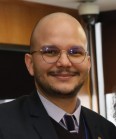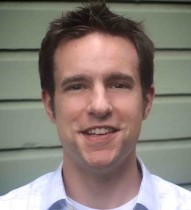Estimating the health and economic benefits associated with reducing air pollution: tools to support decision-making
The virtual technical exchange will focus on presenting tools to evaluate economic and health effects of air quality interventions based on cost-benefit analysis. Participants will learn from the experience of other countries about the importance of incorporating these types of assessments in the decision-making process. The event will include the participation of experts from the United States Environmental Protection Agency (EPA) and the Pan-American Health Organization (PAHO). The participation of Government officials from Ministries of Energy, Environment and Health, and air quality monitoring stations is welcome.
Background: Many studies link significant health problems to breathing ozone and particulate pollution. Fine particles enter deep in the lungs and bloodstream, exacerbating health issues such as bronchitis and asthma, and causing heart attacks and even premature death. These air pollution-related illnesses have financial impacts ranging from lost wages or productivity when people miss work or school, to medical treatment costs and outdoor activity restrictions when air quality is poor.
Policies addressing air quality should consider the effects of air pollution on community health, as well as the avoided health impacts as a result of the intervention. Incorporating these types of assessments in policy-making processes help governments ponder the costs and benefits of policy choices and support balanced decision-making.
Audience:Government officials from Ministries of Energy, Environment, and Health and air quality monitoring stations.
Format:Participants will listen to, and interact with, an expert panel that will present experiences and methodologies to conduct cost-benefit analyses of air quality interventions. Participation in this event is by invitation only.
Agenda
Panelists:
- Juan J. Castillo, Pan American Health Organization:
What does the air pollution burden of disease tell us about the Americas?


Juan José Castillo is a Regional Air Quality Advisor at the Pan American Health Organization. He works delivering technical cooperation to health officers in the Americas and the Caribbean to build capacities towards addressing the air pollution burden of disease. Juan has +12 years’ experience in the environmental public health field. He has worked as an Executive Director in international nonprofit organizations, faculty and researcher , and as public officer in transport, environment and health. He has working experience in the private sector.
Juan studies Environmental Engineering and holds a master’s degree in environmental management.
- Neil Fann, U.S. Environmental Protection Agency:
Health and economic benefits of clean energy policies: Tools used by the EPA
 Neal is a senior policy analyst at the U.S. Environmental Protection Agency and has fifteen years of experience in monetizing the benefits of improved air quality. Neal uses evidence from the air pollution epidemiology and the economics literature to estimate the economic value of EPA air quality regulations including the Mercury and Air Toxics Standards, the Particulate Matter National Ambient Air Quality Standards and the repeal of the Clean Power Plan. He and a team of analysts perform these assessments using a software program called the environmental Benefits Mapping and Analysis Program–Community Edition (BenMAP-CE). Neal’s research interests include estimating the health burden of poor air quality and characterizing the health impacts of air pollution among susceptible populations. He most recently authored an article characterizing the improved life expectancy associated with reduced air pollution. Neal graduated from the Duke University Sanford School of Public Policy in 2003.
Neal is a senior policy analyst at the U.S. Environmental Protection Agency and has fifteen years of experience in monetizing the benefits of improved air quality. Neal uses evidence from the air pollution epidemiology and the economics literature to estimate the economic value of EPA air quality regulations including the Mercury and Air Toxics Standards, the Particulate Matter National Ambient Air Quality Standards and the repeal of the Clean Power Plan. He and a team of analysts perform these assessments using a software program called the environmental Benefits Mapping and Analysis Program–Community Edition (BenMAP-CE). Neal’s research interests include estimating the health burden of poor air quality and characterizing the health impacts of air pollution among susceptible populations. He most recently authored an article characterizing the improved life expectancy associated with reduced air pollution. Neal graduated from the Duke University Sanford School of Public Policy in 2003.
- Stephanie Montero, Secretaría del Medio Ambiente de la Ciudad de México
Integrating health and economic benefit analysis in air quality management in Mexico City


Moderator: Juan Cruz Monticelli (@jcmonticelli)
Section Chief, Sustainable Energy
Department of Sustainable Development
Organization of American States (OAS)
In partnership with:




